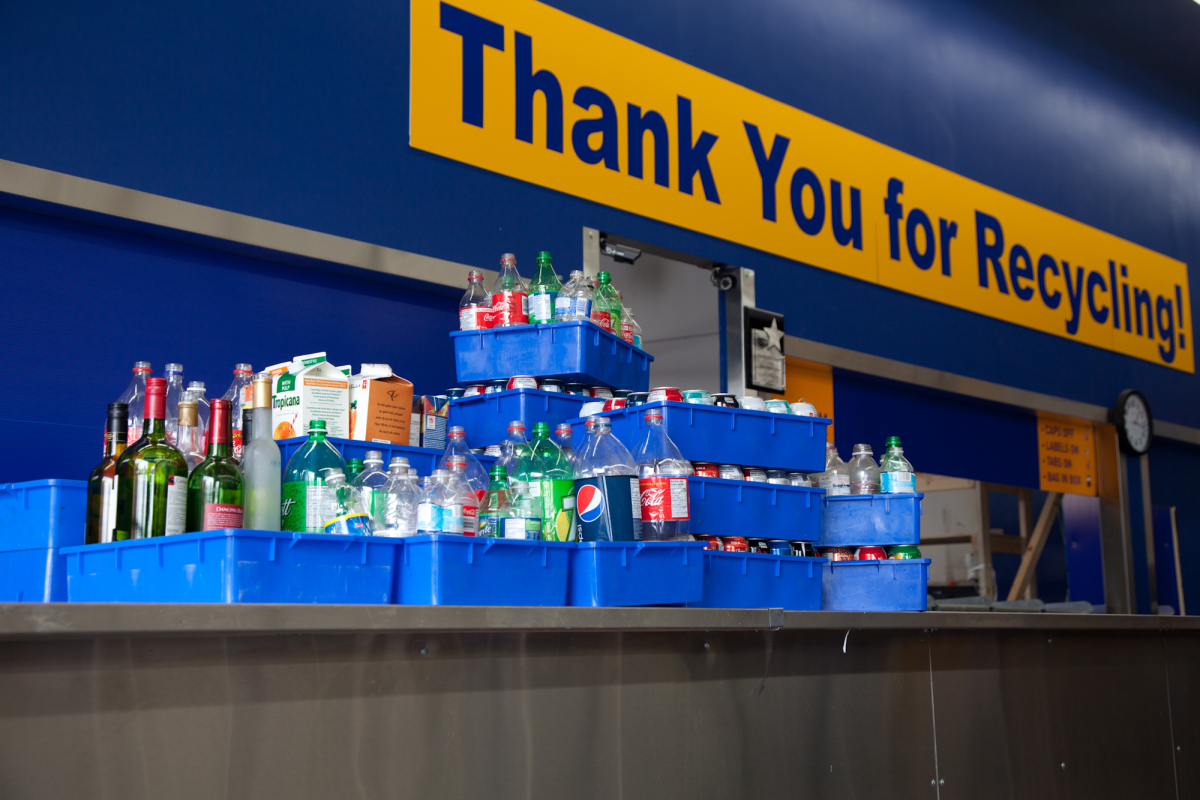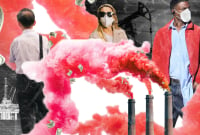Support strong Canadian climate journalism for 2025
The Ontario government confirmed to Canada’s National Observer that it has ruled out introduction of a program to encourage recycling of non-alcoholic drink containers like water bottles and pop cans.
The beverage industry and environmental advocates say the move is a significant setback for the environment, leaving the province as one of only two in Canada without such a system.
Last year, Ontario's Ministry of the Environment said it would establish a working group with representatives from the government, environmental organizations, consumer advocacy groups, recycling industry experts, and business leaders to explore a deposit-return system for non-alcoholic drink containers. The ministry confirmed this week in response to questions that it has ruled out the idea, citing cost concerns “for small businesses and families” but not providing its estimates.
Instead, the ministry stated it will continue using the blue box system, which currently captures only 43 per cent of beverage containers, the lowest rate in Canada.
According to Environmental Defence, a deposit system could increase this rate to 90 per cent.
“It appears that the last 12 months have been a waste of time that delayed action and will result in billions of bottles and cans ending up in landfills or the environment,” said Ashley Wallis, associate director of Environmental Defence, in an online statement.
Krista Scaldwell, president of the Canadian Beverage Association (CBA), which represents industry players like Coca-Cola, PepsiCo, Tropicana and others, told Canada's National Observer in a statement that the Ford government’s decision leaves the province without a plan to reach its 80 per cent beverage container recycling target by 2030.
“For over a year, the beverage industry has supported collaboration among stakeholders across the beverage supply chain. Beverage producers were willing to fund an efficient and effective system to improve recycling rates,” Scaldwell said “The government said the deposit system would cost more, yet no numbers were cited, and no information was provided to our sector. It is disheartening to cut the group's progress short based on the interests of the few select stakeholders.”
Currently, an estimated 1.7 billion plastic beverage containers end up in landfills, incinerators or as litter each year in Ontario. Manitoba is the only other province or territory without a deposit-return system for non-alcoholic drink containers.

For the industry, that’s a lot of raw materials that are lost.
“Beverage producers want every bottle back as beverage containers are made to be remade,” Scaldwell said. “Depending on the model, a move to DRS (deposit return system) could achieve recovery rates between 80 per cent and 90 per cent. This would reduce beverage containers and help to reduce plastic waste in our environment.”
A recent poll shows 81 per cent of Ontarians support an expanded deposit-return program for non-alcoholic beverages, and more than half want to return their empties to grocery and other retail stores. But the government said it would leave it up to manufacturers and retailers to figure out a system.
“Following extensive consultation with stakeholders, it was made clear that creating a new, mandatory bottle deposit return system would add significant costs for small businesses and families,” said Lindsay Davidson, a spokesperson for the ministry of the environment, conservation and parks, in an email statement. “Should producers and retailers wish to work collaboratively to implement a system that is both cost effective and increases recycling rates, we would welcome that, however we cannot support increased costs at a time when cost of living is so high.”
The rejection of the deposit-return system has also sparked criticism from environmental advocates.
“This government is once again shrinking away from a real solution to waste issues,” said Emily Alfred, waste campaigner at the Toronto Environmental Alliance, one of the environmental advocacy groups that was pushing the province to introduce a deposit system. “Environmental groups, and even beverage producers support a deposit system, but it seems like a few major businesses are pushing back, and the Ford government is giving in to them.”
Alfred highlighted the disparity in recycling rates between containers with and without a deposit:
“The collection rate for alcohol containers with a deposit in Ontario is double the collection rate for those containers that don't have a deposit; the solution is so obvious,” she added.
“We know that non-alcohol drink containers — cans, bottles, lids and cartons — are top litter items that consistently show up on Toronto streets, in our parks, rivers and beaches, and that's a huge cost for the environment and for the public since our cities have to clean it up.”
Ontario has the Blue Box Program, which doesn't specifically track beverage containers, but includes various materials including packaging, paper, some plastics and cans. It claimed a 53 per cent success rate in getting recyclables into the system instead of the landfill in 2021, the most recent year for which data is available.
The Blue Box program is transitioning to a new framework under the Resource Recovery and Circular Economy Act, passed in 2016. The new program will be fully funded and operated by producers and will specifically track beverage containers. Approximately a third of communities have already adopted this new program.
Elsewhere in the country, deposit-return systems are diverting tons of waste from landfills and the environment. For instance, British Columbia achieved an 80 per cent return rate on beverage containers last year, diverting approximately 90,000 metric tonnes of waste. Quebec has also updated its deposit-refund system to double the number of redeemable beverage containers, aiming for a 90 per cent recovery rate by 2032.
Scaldwell said beverage producers are willing to fund an efficient and effective system to improve recycling rates. “We are continuing our work on different options to move forward with a deposit-return system. The Canadian Beverage Association and its members will continue to work towards a DRS for all beverage containers to increase recycling rates in Ontario.”







Comments
Conservatives will do what conservatives do. It's up to the rest of us to get their MO. Here's one clue...they nibble at the edges of good social programs, refusing to expand where needed, and cutting on the edges to abandon the most vulnerable.
We saw it in Alberta under Kenney........the PUFF program, for 5 year olds who were language delayed, was a very small part of the educational budget. But they figured most Albaturdans wouldn't notice and they abandoned those kindergarten kids.....saving approx 100 thousand, if memory serves.
Penny pinchers and chintzy thinking won't get us out of the climate crisis....and cutting on the edges leads to more problems at the centre. In the future, sacrifice zones of any shape or kind, have to be eliminated from our plans of holding on to what is ours..........at the expense of the whole.
Recycling beer bottles has worked for decades. At one time (before plastic containers became popular with corporations) milk bottles and pop bottles were also recycled - even though Coke, Pepsi and others had different bottles. It worked, and Blue Box systems were not needed.
There is no reason why 'real recycling' (as in earlier times) cannot work in the future. All it takes is co-operation by drink corporations and legislation by federal or provincial governments. The fly in the ointment is good politicians - which seems to be in very short supply.
I really think Ford and his government just hate the environment and are actively trying to destroy it.